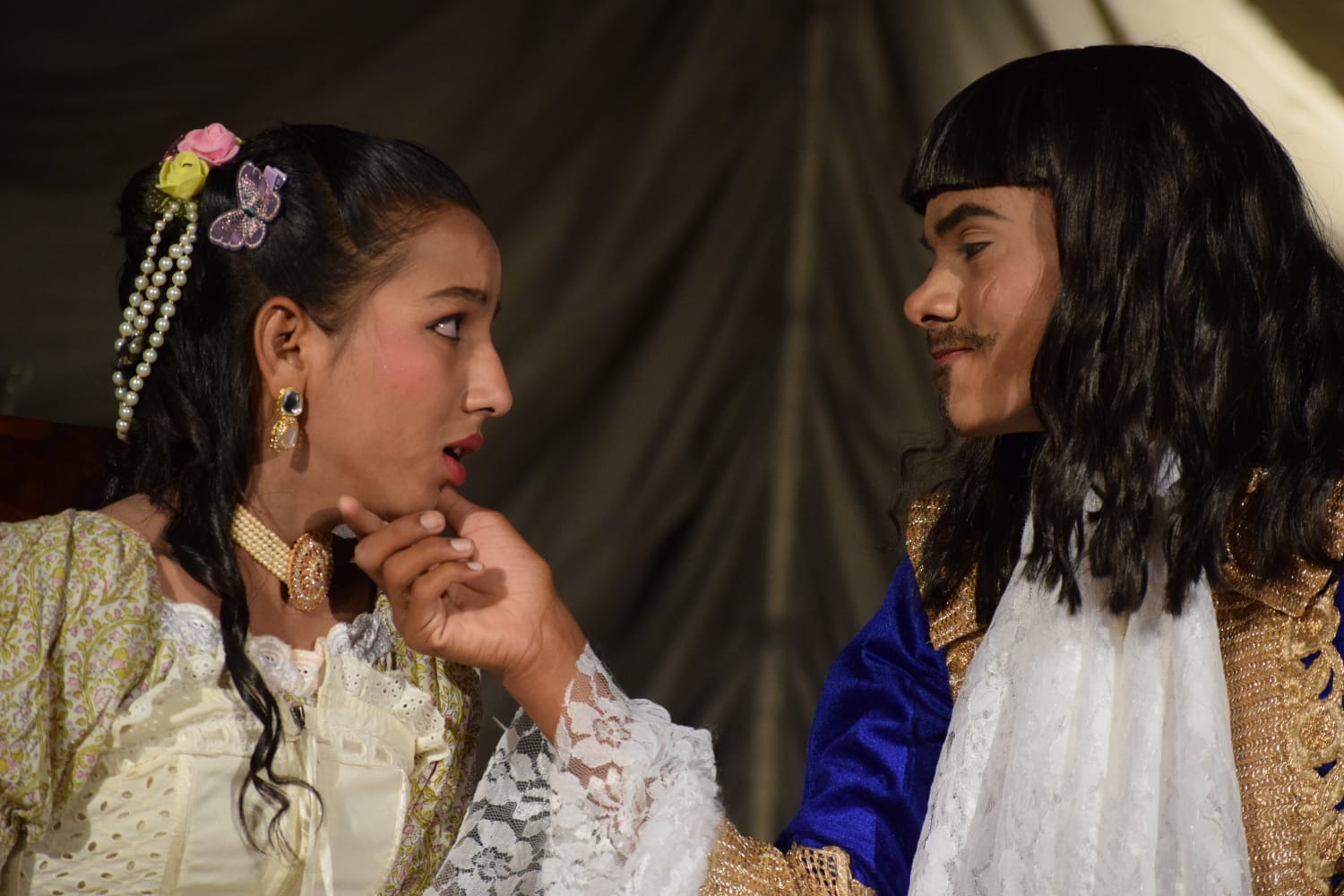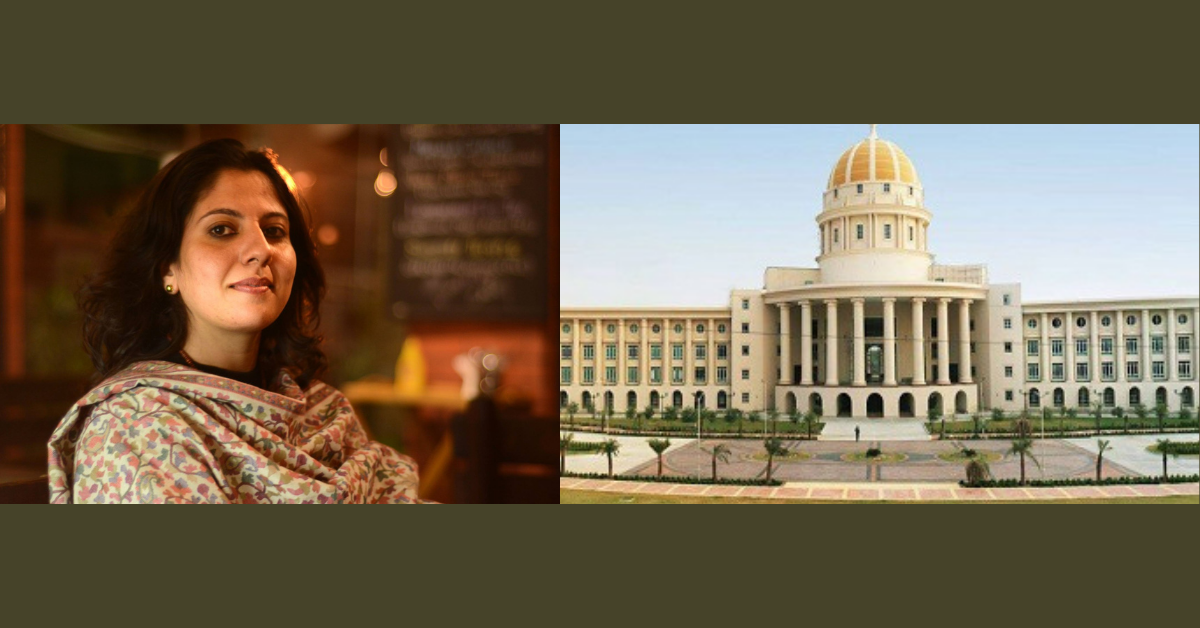The Pink City experienced two remarkable firsts on Saturday evening. The renowned Gem Cinema, known for its single-screen and art deco charm, became the backdrop for a theatrical production for the very first time. Adding to the excitement, a Hindi adaptation of the renowned French playwright Moliere’s play was also presented for the first time in Jaipur. The occasion was the staging of the play ‘The School for Wives’ by the NGO Indian Women Impact and Alliance Francaise Jaipur.
As many as 20 children from the marginalized community of Sitaram Nagar Kacchi Basti at Triveni Nagar in Jaipur staged the Hindi adaptation of the play coupled with some French language. Adapted in a children-friendly way, the comedy celebrated the poignant message that women’s lives cannot be limited by the roles patriarchy assigns to them as mothers and wives.
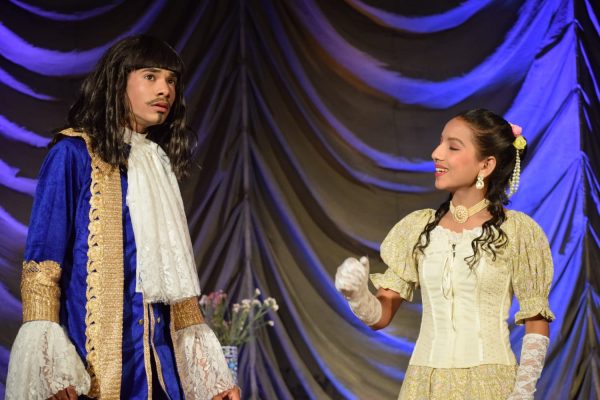
Celebrating Multiculturalism
The adaptation of Moliere’s play in Hindi showcased the multicultural essence of the event. It not only celebrated the rich heritage of French theater but also highlighted the creative prowess of Indian artists, who skillfully rendered the classic masterpiece in a language familiar to the local audience. This remarkable endeavour aimed to bridge cultural gaps and foster a deeper appreciation for both French and Hindi dramatic arts.
The play was a resounding success in bringing alive the Renaissance era of 17th century France, thanks to the dedicated efforts of the students who had been diligently learning French for over a year and a half at Alliance Francaise Jaipur. Telling more about the play, Director of Alliance Francaise Jaipur, Sanjana Sarkar said: “The children of Indian Women Impact started learning French in late 2021 with the Alliance Francaise Jaipur. It has been a couple of years of hard work from the students, dedicated teachers and the team to ensure these kids have come a long way with the French language. They brought alive on stage a play based on 17th century France adapted into their own language. This is at the heart of what we do at the Alliance Francaise – make French language and culture accessible for all.”
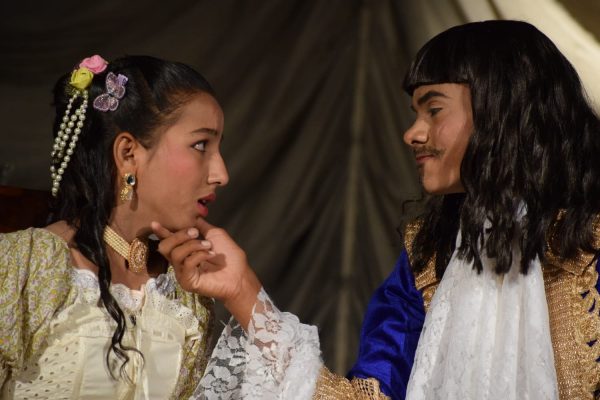
Embracing the spirit of French Renaissance
In addition to their French language studies, the children wholeheartedly immersed themselves in a diverse range of workshops that encompassed Moliere and French Literature, the enchanting world of 17th century France, as well as engaging activities such as Fencing, Horse riding, archery, and embroidery. These workshops allowed them to deeply connect with the intricate elements of the French Renaissance, embracing its spirit in its entirety.
Directed by Mudita Choudhary, the play embraced an eclectic approach that aimed to provide a comprehensive understanding of the French Renaissance while delving into thought-provoking themes such as the subjugation of women and the significance of education and individual choice. Moliere’s masterful storytelling skillfully intertwined elements of education, naivety, and religion to shed light on crucial aspects of culture and society, offering the audience a profound glimpse into the complexities of the human experience.
An Unscripted End
At the heart of the play stands the compelling protagonist, Arnolphe, a striking embodiment of rigid inflexibility in his beliefs. An insecure man desperately seeking an ideal bride, he goes to great lengths, ultimately molding a young girl to fit his narrow expectations. However, as the narrative unfolds, calamity befalls him, unraveling his meticulously laid plans in a spectacularly disastrous manner. Yet, it is in the play’s poignant conclusion that its true essence flourishes, unscripted and profound. It is a testament to the power of choice, particularly in the hands of women. The ending reveals an unwavering truth—that when it comes to selecting a life partner, the ultimate decision rests solely with the woman herself. Whether she embraces the notion of choosing a companion or defies societal expectations by opting for independence, the final choice remains unequivocally hers.
The successful staging of this event in Jaipur not only enriched the cultural landscape of the Pink City but also served as a testament to the city’s growing appreciation for the performing arts. As the curtains fell and the applause filled the theater, it was evident that this extraordinary evening had left an indelible mark on the hearts and minds of the audience. The play will be staged again on May 13 at 6.30 pm at Jawahar Kala Kendra. Entry to the play will be free.
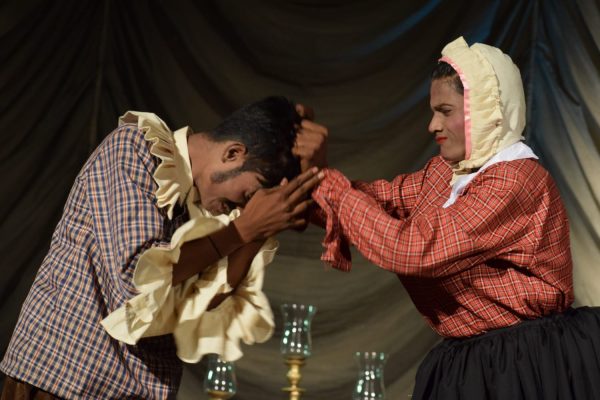
Tusharika Singh
Latest posts by Tusharika Singh (see all)
- The staging of ‘Dance Like a Man’ in Jaipur - August 27, 2024
- An evening with Vikas Swarup in Jaipur - August 27, 2024
- Ties & Tastes for Rakhi ft. Jaipur entrepreneurs - August 14, 2024

